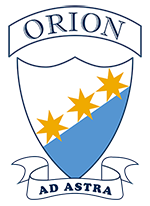Educational Psychology Support
Orion College has two dedicated educational psychologists that work across the Primary and High School. Both psychologists are registered with the Health Professions Council of South Africa (HPCSA) and adhere to the ethical guidelines stipulated by them.
They work from predominantly a Systemic Framework and incorporate appropriate therapeutic techniques and interventions to cater for the diverse needs of the learners of Orion College.
There is a referral process involved for when intervention is required:
- At the beginning of the year a blanket consent form is sent out to all parents for them to sign for them to grant permission for the psychologists to work with their child/ren.
- Either the parent/guardian or the teacher can refer to the psychologist when a concern arises. An appointment can be made with the psychologist to discuss the concerns further or an email requesting therapy can be sent directly.
- The learner can also request therapy.
- If parental consent has been obtained and all parties are satisfied for therapy to commence, then the child will receive a regular slot which will be agreed upon with everyone.
The educational psychologists offer the following services:
Play Therapy
Children express themselves through play, a natural activity for them. Emotional difficulties can often be symbolically represented through play, therefore, play therapy allows for the exploration of this. The aim of the psychologist would be to facilitate growth as the child works through his or her difficulties. A variety of techniques can be used during play therapy. The psychologists at Orion College try to work with what the child brings to the therapeutic space and also incorporate his or her interests.
Individual Therapy
As children get older, the time spent playing decreases. Therefore, play therapy will not be relevant anymore, particularly to adolescents. The aim with older children and adolescents is to offer guidance through difficulties that they may experience through an individual therapeutic process. This may involve talk therapy and other techniques, such as psycho-education.
Group Therapy
Should a common issue or difficulty be identified among a group of similar learners, then group therapy may be used to address this. This process often fosters feelings of support, encouragement, and understanding.
Parent Guidance and Support
Having a child with challenges can also take its toll on our parents and parent support and guidance is an important part of intervention. The focus of this is to support parents through the challenges that come with parenting and offer guidance in terms of effective strategies.
Assessments
Assessments are an important aspect which assist us in understanding your child better and what his/her learning needs are. These also help us determine a learner’s strengths, areas of development, and what support interventions may be beneficial. Consent is obtained for each assessment the learner is subjected too. Consent forms are sent home with the learner for parents to sign and send back.
Psycho-Educational Assessments are administered when a new learner visits the school and thereafter every two years or once during a phase of schooling. Encompassed in these assessments are measures of cognitive, scholastic, perceptual, and social-emotional functioning. The purpose of continuous reassessment is to track the learners’ progress and whether they are benefitting from interventions and the placement offered to them. Assessments are also conducted to determine placement or if a child may change streams.
School-Readiness Assessments are generally recommended in Grade R during the last few months of the year to determine whether the learner is ready to cope with the formal demands of Grade 1. This type of assessment helps to ascertain if the child has consolidated the necessary skills to thrive in school.
Career Assessments are administered in Grade 11/Level 3 to assist learners to make a more informed decision regarding their future career and vocational options.
Accommodations (concessions) Assessments are administered during the FET phase of schooling when a referral is made due to observed difficulties during tests and examinations. These assessments are used to determine whether a learner requires extra time, a reader, a scribe, a separate venue, spelling concession, or full amanuensis to have a fair opportunity to write examinations.
